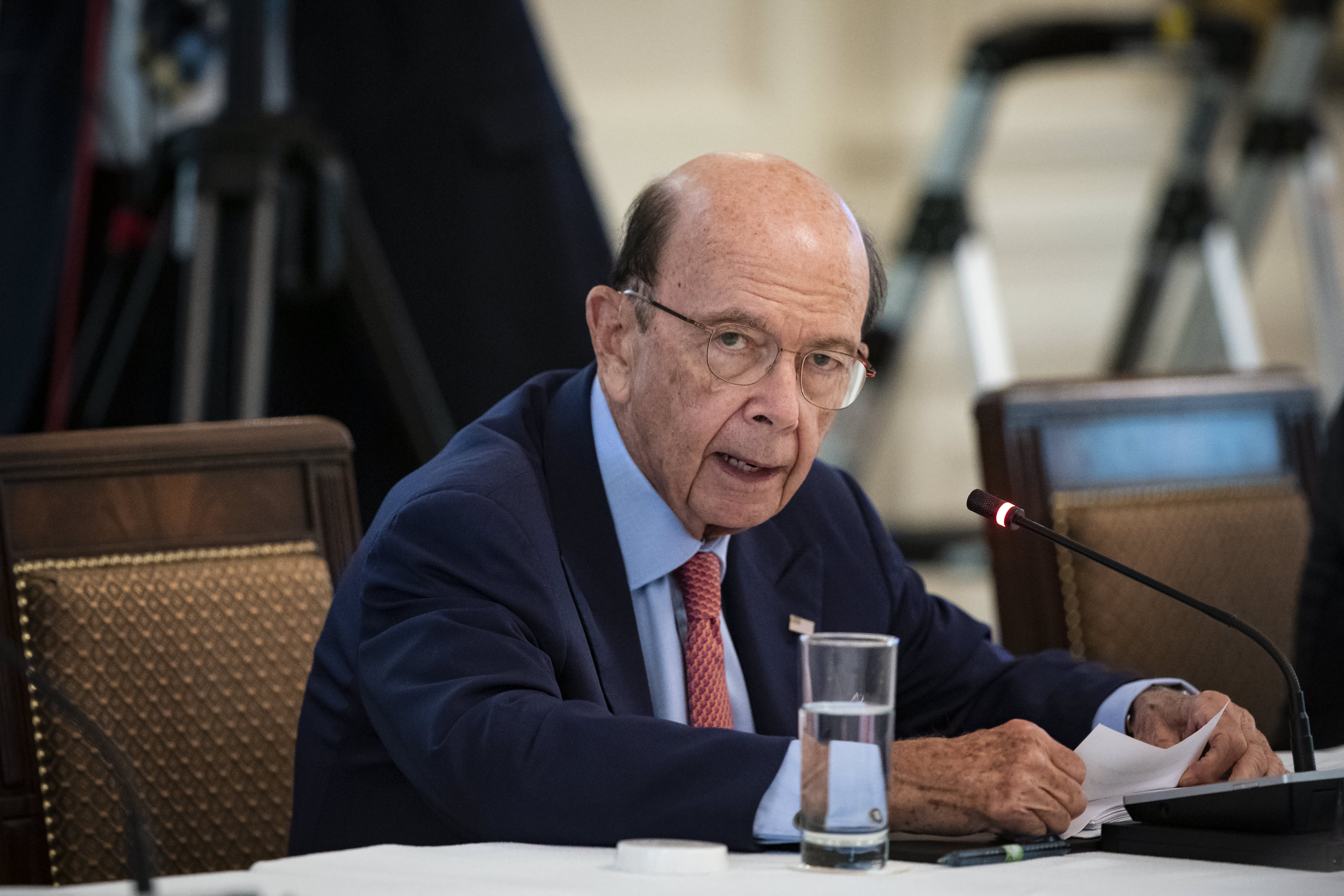
Wilbur Ross, U.S. commerce secretary, speaks during an American Workforce Policy Advisory Board meeting in the East Room of the White House in Washington, D.C., U.S., on June 26, 2020.
Al Drago | Bloomberg | Getty Images
China said Friday it has sanctioned seven people, including former Trump Commerce Secretary Wilbur Ross, in response to U.S. penalties imposed on Chinese officials over Beijing’s clampdown on democracy in Hong Kong.
The reciprocal sanctions were imposed under China’s new Anti-Foreign Sanctions Law, which was passed in June. The sanctions are a response to the United States’ recent warning to companies about the risks of doing business in Hong Kong.
They also came days before Deputy Secretary of State Wendy Sherman is to visit China, making her the most senior U.S. official to visit China during the Biden administration.
In addition to Ross, others sanctioned include Carolyn Bartholomew, chair of the U.S.-China Economic Security Review Commission; Jonathan Stivers, former staff director of the Congressional Executive Commission on China; and Sophie Richardson, Human Rights Watch’s China director.
Also sanctioned were DoYun Kim at National Democratic Institute for International Affairs; Adam Joseph King, senior program manager of the International Republican Institute and the Hong Kong Democratic Council.
Ross, a billionaire businessman and investor, has done business in China. As Commerce secretary, he was one of the faces of former President Donald Trump’s trade war with China.
“I would like to stress once again that Hong Kong is China’s Special Administrative Region and its affairs are an integral part of China’s internal affairs,” Foreign Ministry spokesperson Zhao Lijian said in a statement. “Any attempt by external forces to interfere in Hong Kong’s affairs would be as futile as an ant trying to shake a big tree.”
The Chinese Embassy in Washington didn’t immediately respond to a request for comment. The White House and State Department did not immediately respond to CNBC’s request for comment as well.
Lijian said Friday that China “firmly opposes and strongly condemns” the Biden administration’s issuance of the Hong Kong Business Advisory last week, which warns that U.S. firms are facing several risks posed by China’s sweeping national security law in Hong Kong.
“These acts gravely violate international law and basic norms governing international relations, and severely interfere in China’s internal affairs,” Lijian said in the statement.
China’s national security law was passed in June 2020 and has been condemned by Washington for aiming to limit Hong Kong’s autonomy and banning literature that is critical of the Chinese Communist Party.
A Biden administration advisory, published jointly by the departments of State, Treasury, Commerce and Homeland Security, says businesses face risks of warrantless electronic surveillance, surrendering data to authorities and “restricted access to information.”
It also sanctioned several Chinese officials with Beijing’s liaison office in Hong Kong for limiting autonomy in the territory.
“Beijing has chipped away at Hong Kong’s reputation of accountable, transparent governance and respect for individual freedoms, and has broken its promise to leave Hong Kong’s high degree of autonomy unchanged for 50 years,” Secretary of State Antony Blinken said in a statement about the advisory.
The Hong Kong warning came days after the Biden administration issued a similar advisory for firms with businesses and operations in Xinjiang province, where there is growing evidence that the Chinese government has carried out genocide and other human rights abuses against Uyghurs and other Muslim minorities.
The relationship between Beijing and Washington became even more strained under the Trump administration, which provoked a trade war and worked to ban Chinese technology companies from doing business in the U.S.
Biden has previously said that his approach would differ from his predecessor’s, stating that he would work closely with allies to push back against Beijing.
The Chinese sanctions on Ross came soon after the Department of Justice declined to prosecute him for allegedly misleading Congress about census citizenship questions.




